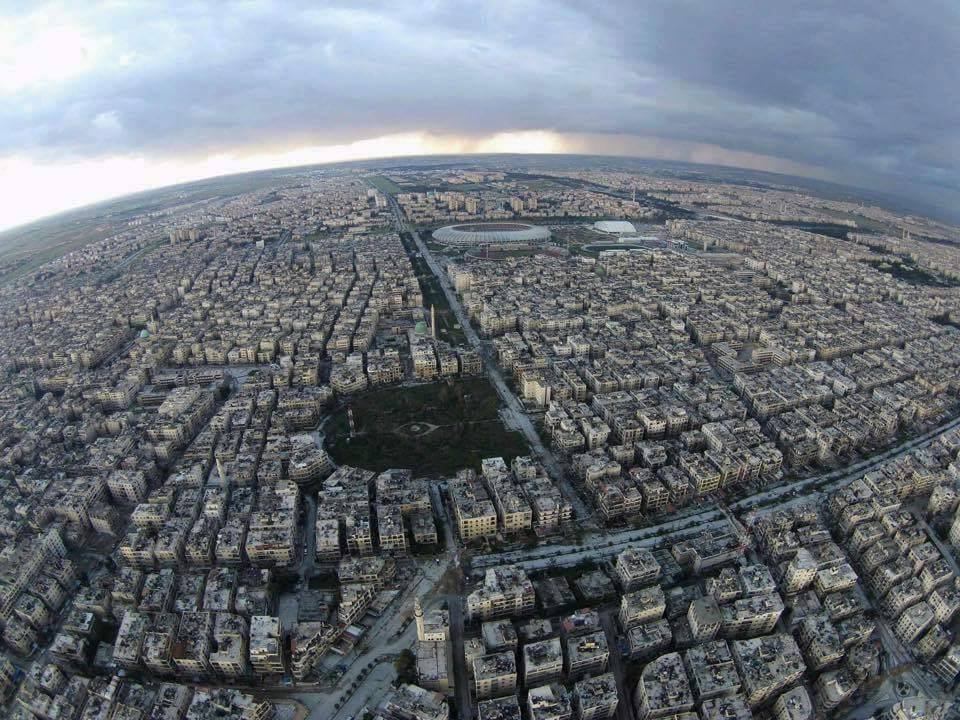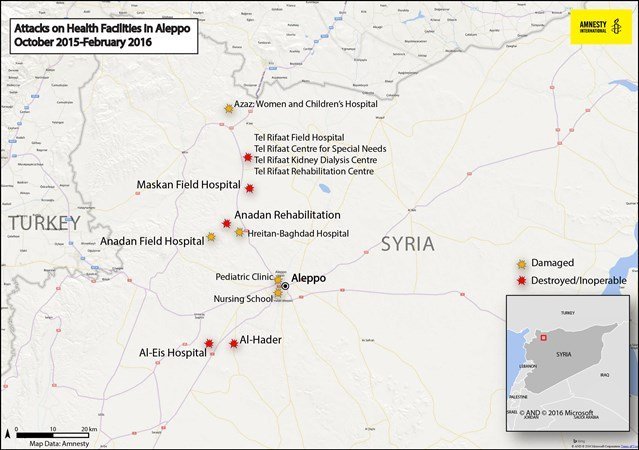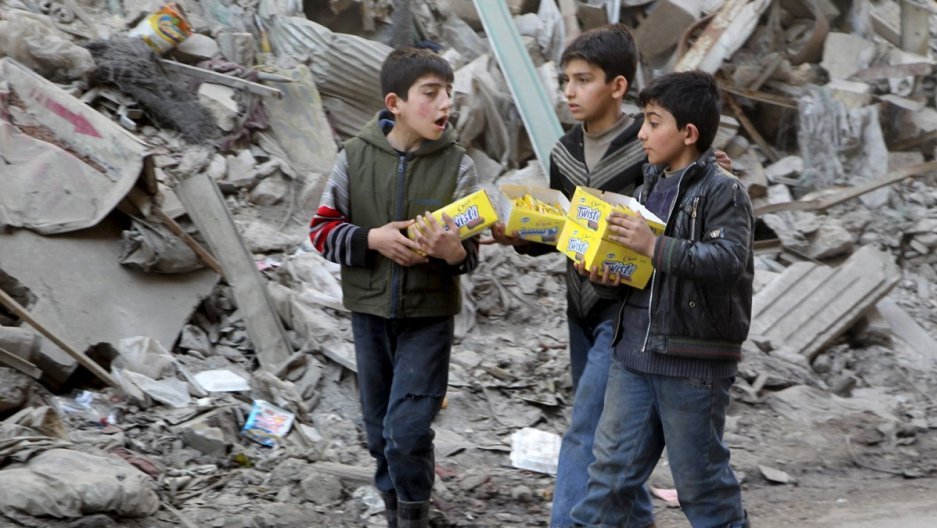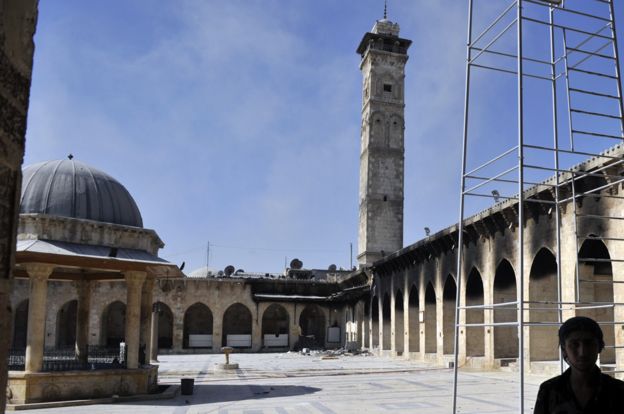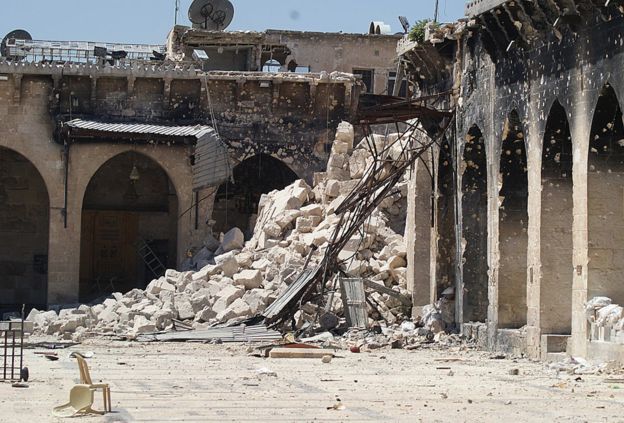“Syrian and Russian forces have been deliberately attacking health facilities in flagrant violation of international humanitarian law. But what is truly egregious is that wiping out hospitals appears to have become part of their military strategy.” Tirana Hassan, Crisis Response Director at Amnesty International.
Refugee tents at the Bab as-Salameh border crossing with Turkey.
THE CEASEFIRE
Despite the ceasefire, fighting between al-Nusra Front and other rebel groups with Kurdish paramilitary units in and around the Kurdish-held Sheikh Maqsood district intensified. Per the Syrian Observatory for Human Rights, 14 people died and dozens were injured when al-Nusra launched 100 shells towards Sheikh Maqsood.
PRI looks at life in Aleppo after the ‘ceasefire.’
Last Friday saw the return of large protests to Syria, including in Aleppo City, Atareb, western Aleppo countryside, Azaz, northern Aleppo countryside and Maaret an-Numan, Idlib. The protests supported the ceasefire and called for freedom and the departure of the regime of Bashar al-Assad.
LIFE IN THE CITY
After 50 days without municipal water service, the General Management of Services Department started pumping water into Aleppo from a series of plants, including Ayn al-Baida and Suleyman al-Halabi. Resuming water service to the city required cleaning plant filtration systems, providing water pumps with diesel, repairing pipes, and coordination between the government in western Aleppo, rebels in eastern Aleppo, and ISIS in the eastern Aleppo countryside.
General Management of Services also provided a status update on water and electrical infrastructure maintenance in eastern Aleppo. Halab News Network reported that water service has resumed in many districts on both sides of the city.
The Free Aleppo Local Council and other groups started a campaign to increase food security by planting food crops in house gardens, parks and rooftops. The organizers provide residents with technical assistance, seeds, fertilizer, soil, Styrofoam, and greenhouse material.
Teachers graduate from a training and qualification programme run by Tamkeen and the Local Council of Aleppo.
Al-Arabiya reports that, “one week into the ceasefire in parts of Syria, the country’s iconic yellow taxis are slowly filling the rubble-strewn streets in eastern neighbourhoods.”
CULTURAL HERITAGE
Waraqa Cultural Centre held a traditional Aleppo music and dance performance to help preserve the city’s cultural heritage.
The BBC Magazine’s Museum of Lost Objects traces the stories of 10 antiquities or ancient sites that have been destroyed or looted in Iraq and Syria, including Aleppo’s minaret.
 The Aleppo Project
The Aleppo Project